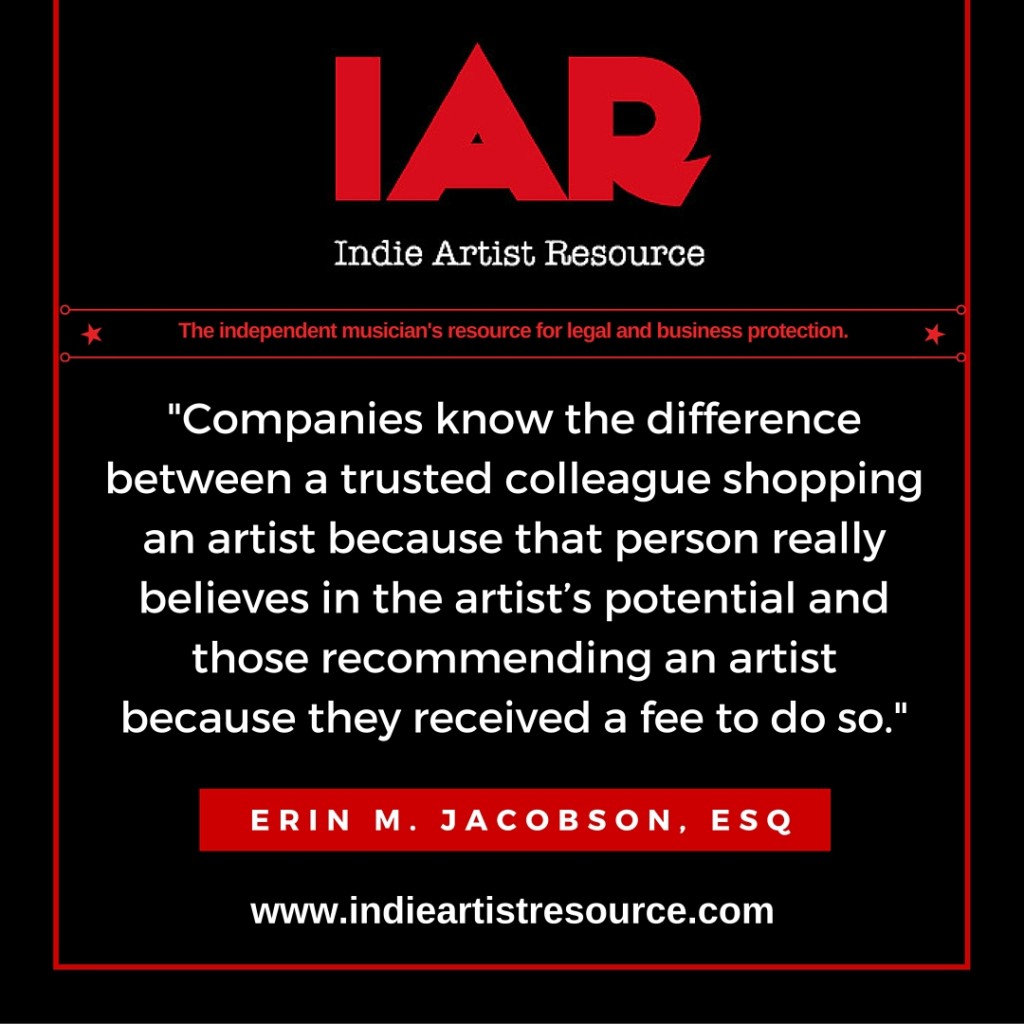By: Erin M. Jacobson, Esq.
A common and long-standing frustration amongst musicians is getting their music heard. Most companies do not accept unsolicited material and require any submissions to be through an artist representative they know and trust. Companies do this to try to protect themselves from claims of copyright infringement based on one of their releases sounding too close to something submitted to them by someone they don’t know.
Because of the “no unsolicited material accepted” policy, artists need someone to shop the music for them. However, an artist must also determine the right type of person to shop their music and whether that person actually shops artists.
The types of people companies will usually accept material from are agents, managers, and attorneys. Some companies will be even more restrictive and only accept from agents and attorneys.
How do you get someone to shop your music for you? It’s great if you already have a relationship with a connected person willing to shop you. If not, you will have to contact representatives to see if they are willing to shop you. In the case of attorneys, some will shop artists while others will not. Within that designation, some attorneys will shop only certain artist that they believe in, while others will shop anyone that pays them to do so.
In many cases the better approach is to try to make the connections and relationships with label employees and artist representatives yourself. If the company still requires an attorney or agent to submit your work, you can get one to do so on a formality.
If you are going to submit your music, it should be recorded to the best quality you can afford and not sound like demos you made in your bedroom. Your packaging and your EPK must be up-to-date and professional. It may serve you well to have a professional in the industry create or review your submission package before you start sending it out, as labels and other music companies want your package as finished as possible so they don’t have to guess as to whether your rough demo and selfies would translate to a professional product. Your photos should be professionally shot and in high-quality resolution. Put your best songs first and make sure they have strong hooks that catch the listener quickly because most executives will only listen to the first 30 seconds of each song. If you are e-mailing your material, make sure that you’re music is available on a link and you do not send large files to people’s inboxes.
Remember to ask the representative’s policy on shopping and do not bother them with shopping requests if you know they do not shop. Some attorneys, like myself, post their shopping policies on their website,* so be sure to read and follow instructions. Good luck!
* Erin M. Jacobson, Esq. does not offer shopping services to artists.
Disclaimer: This article is for educational and informational purposes only and not for the purpose of providing legal advice. The content contained in this article is not legal advice or a legal opinion on any specific matter or matters. This article does not constitute or create an attorney-client relationship between Erin M. Jacobson, Esq. and you or any other user. The law may vary based on the facts or particular circumstances or the law in your state. You should not rely on, act, or fail to act, upon this information without seeking the professional counsel of an attorney licensed in your state.
If this article is considered an advertisement, it is general in nature and not directed towards any particular person or entity.






